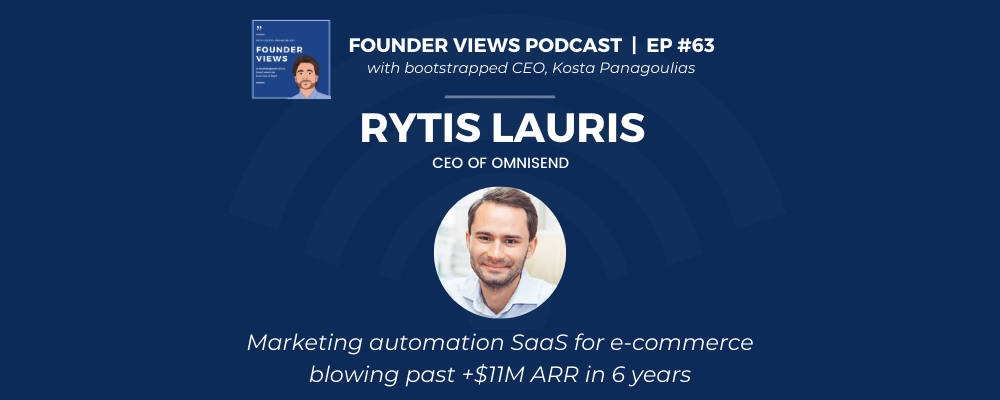Since August 2023, I’ve been developing and growing my SaaS company, Jobtable, as a Progressive Web App (PWA). Over the last several weeks, we worked hard behind the scenes to successfully launch on both the Google Play Store, and the Apple App Store. Needless to say, we were pretty excited about the accomplishment.
To most people, launching an app on two of the largest app marketplaces in the world would sound like an important milestone. However, for me, it led to a greater and unexpected learning experience: it exposed how completely unnecessary native apps are in 2024.
From the perspective of an experienced bootstrapped SaaS founder, these are the reasons why building native apps are a bad idea and why PWA’s are a great alternative:
1. The user experience on a PWA is better, or just as good as a native app
Since our company’s launch, we’ve been onboarding clients on our software, while educating them on how to install our PWA on their mobile phones. This was the first time I personally used a PWA as an app on my phone, and I was pleasantly surprised at how native it felt. The experience of using a PWA is literally no different compared to using any other native app.
I suppose I naively thought a native app would “feel better.” So you can imagine my confusion when I opened the iOS app for the first time and couldn’t even tell if I was using the PWA or the native app.
2. Easier and faster to make updates on PWA
With a PWA, your codebase is unified in one library. This means that when a software update is made, it is immediately reflected across all users, as PWA’s run directly from the web.
In contrast, native apps on iOS and Android require separate codebases. When you need to update your app, you have to publish two distinct updates and conduct QA testing for each platform. These updates then need to go through an approval process from Apple and Google. After approval, users must download and install the updates manually to benefit from the latest features or fixes.
3. Push notifications are now possible on PWA’s
For the longest time, one of the major drawbacks of PWA’s was the inability to send push and badge notifications, particularly on iOS. However, this limitation has been addressed. You can now send push notifications on PWA’s for both iOS and Android platforms.
This added capability significantly enhances the user experience by providing real-time updates and notifications, similar to native apps. It further demonstrates that many use cases that traditionally required native apps can now be effectively handled by PWA’s.
4. Much more time, money and resources are required to manage native apps properly
Due to my inexperience on the technical side, I initially assumed that wrapping a PWA into a native app would be straightforward. However, I quickly realized that our limited resources would be severely overburdened by the added complexity of managing and unifying multiple codebases and libraries. This complexity was going to significantly impede or even halt our ability to push new software features and enhancements efficiently.
Effectively managing native apps on multiple platforms requires specialized mobile developers for each platform. Unless you have significant investment or your business is printing money, this is simply not feasible nor justifiable for a bootstrapped company.
Of course, there are benefits of listing your app on the big marketplaces.
- There are opportunities to get more marketing exposure
- It might add a sense of legitimacy to your business
In my opinion, the two benefits listed above are not enough to justify the resource allocation required to build native apps. While it might be possible to gain more exposure on app marketplaces, this benefit comes with its own set of challenges. Marketing on these platforms requires significant time and attention, especially if you are new to app marketing. If you lack experience in this area, your time and attention might be better utilized in areas where you have more expertise.
The argument that it might add a sense of legitimacy to your business can also be valid, depending on your industry and competition. If all of your competitors are built as native apps, then it obviously makes sense for you to do the same. If not, then the legitimacy argument quickly loses its strength.
So, that begs the question: why do so many companies (including my own) fall for the trap and feel obliged to build native apps?
The only logical explanation is that we’ve been conditioned and influenced to believe that this is a requirement for software companies. The question “do you have an app?” has been ingrained in our minds for so long that we’ve come to associate an “app” solely with something downloadable from an App Store. This is a misguided notion, but it’s a prevalent reality.
All it takes to break free from this conditioning, is a slight tweak in mental wiring. The next time you’re asked, “Do you have an app?” your answer should be a loud and confident “Yes”, followed by an explanation of why your PWA is the best choice for your customer.





